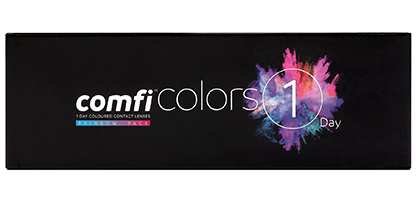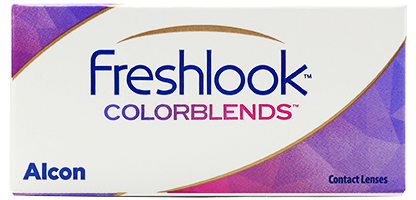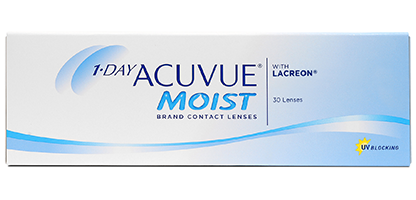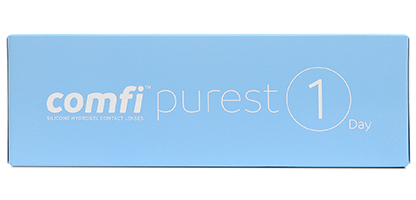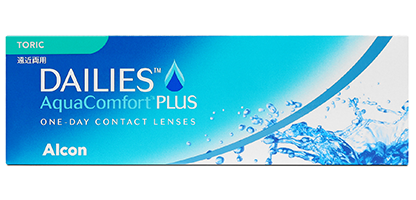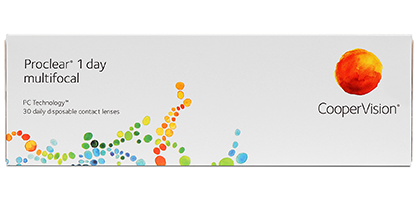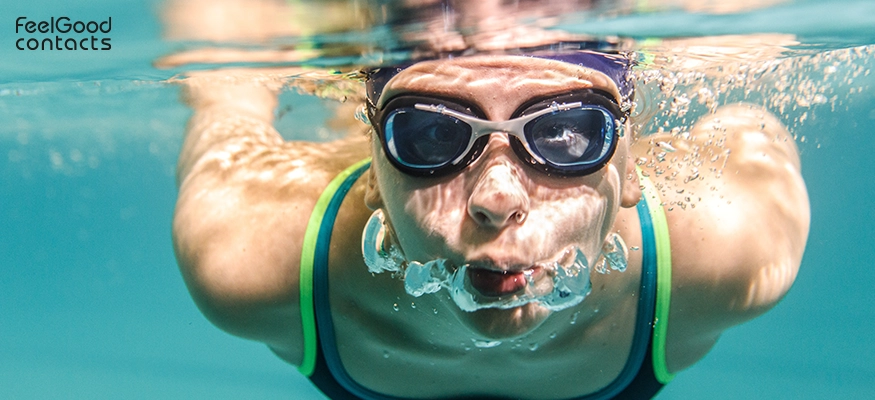Waka Waka has been an anthem, not just for football lovers across the globe, but for everyone. The reason is that the lyrics are all about strength, courage and great sportsmanship. Football is a sport that requires a high level of concentration and accuracy from its players. The key to success on the pitch is ultimately good vision. This allows players to sense movement on either side and make quick decisions that could be the difference between a win or a loss. For example, players with good vision will be able to scan the field to make better passes.
We have compiled a list of top football players who wear contact lenses and excel in their game. Let's take a closer look.
How does clear vision impact your performance in sports?
Did you know…
In sports, our eyes play an integral role in providing up to 80% of the information we need to perceive our surroundings?
Vision plays a significant role in an athlete's performance, affecting visual clarity, motor performance, and information processing. As an athlete, it can be frustrating to feel like your performance is not up to par due to vision-related issues. However, improving your ability to see and respond to what you see can help improve your hand-eye coordination and overall performance.
Whether you're a football player facing challenges on the field or participating in any other sport, good visual acuity and peripheral vision can give you a competitive edge.
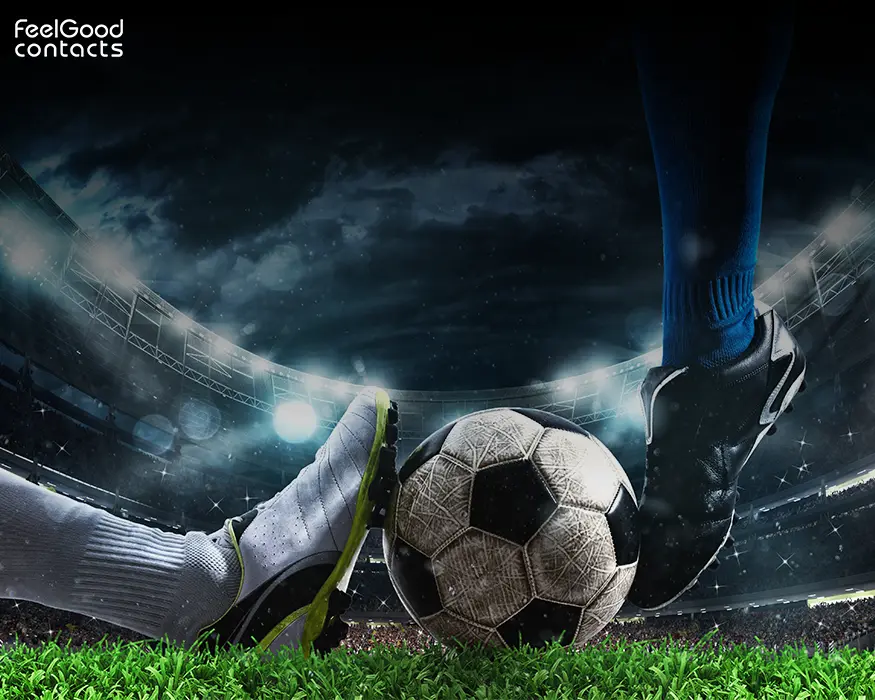
Do professional footballers wear contact lenses?
Good sports performance requires proper training, a balanced diet, and sharp vision. Professional footballers wear contact lenses to adjust their vision on the pitch during gameplay. Here are just a few star players who wear lenses on the pitch:
Cristiano Ronaldo
Cristiano Ronaldo is one of the greatest football players of all time. He has 33 senior trophies, including seven league titles, five UEFA Champions Leagues, and several others. He wears contact lenses during games to improve his vision, which helps him maintain his accuracy on the pitch and score more goals.
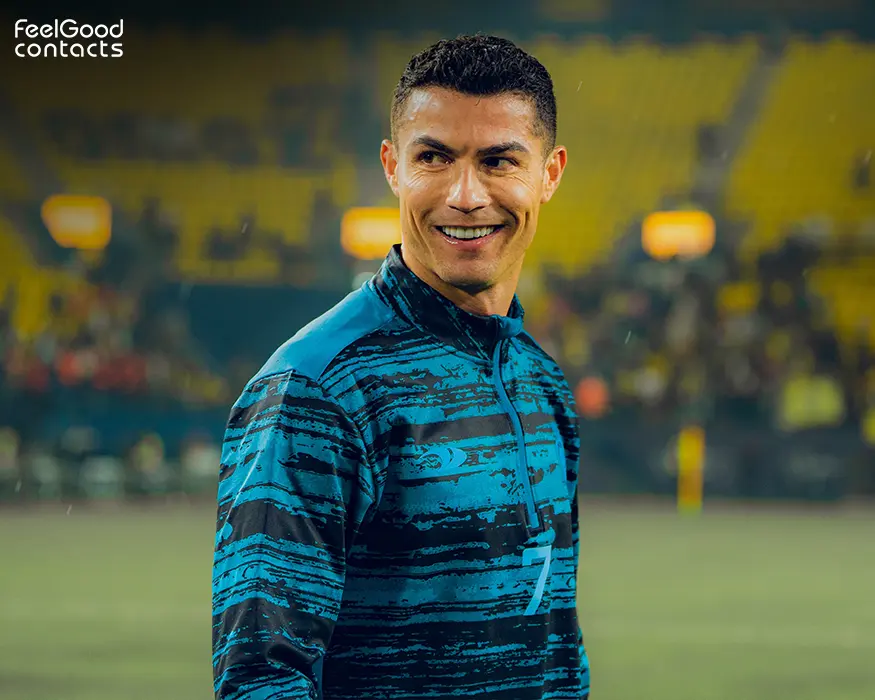
Mario Balotelli
Before he underwent laser eye surgery, Balotelli used prescription contact lenses during his games to help correct his nearsightedness.
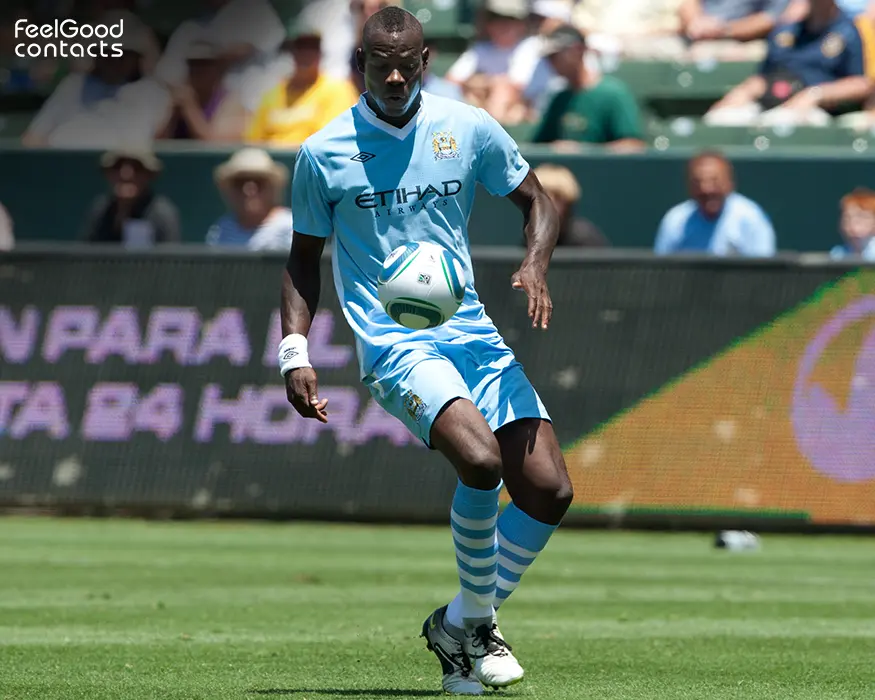
He continues to wear cosmetic contact lenses as a fashion accessory and was spotted wearing blue contact lenses during his time at Manchester City FC.
Did you know…
At Feel Good Contacts, we stock premium quality blue coloured contact lenses online at affordable prices? Browse from True Blue, Brilliant Blue, True Sapphire and more, all in one place.
David De Gea
Despite his far-sightedness, the famous ex-goalkeeper of Manchester United performed his best in the Premier League. As a goalkeeper maintaining sharp vision is essential, especially when following the ball’s movement and tracking the opposing players.
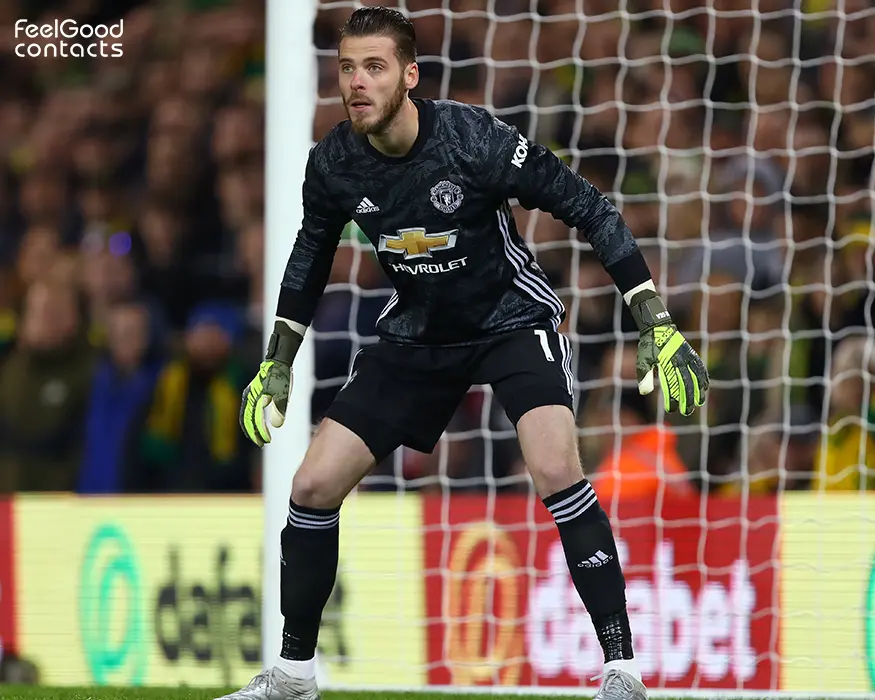
Wearing contact lenses has been a contributing factor to Gea becoming one of the best goalkeepers in the world.
Daily disposable contact lenses are generally considered a convenient choice for those with busy schedules like that of professional athletes.
At Feel Good Contacts, you can shop daily contact lenses online up to 50% cheaper than high-street opticians. It’s important to consult with an eye care professional to determine the best type of contact lens for your individual needs and to ensure proper lens care and hygiene.
Browse through our wide collection of daily lenses from well-known brands such as Acuvue, Biotrue and more.
Can you play football with contacts?
Contact lenses provide complete freedom while playing sports and offer many benefits such as a wider field of vision and are less likely to fog up or get damaged during a game. This makes them an excellent choice for anyone looking to improve their sports performance.
If you are a football enthusiast with an astigmatism prescription, shop toric contact lenses online for vision correction. However, it is best to consult your optician before purchasing your lenses to find the most suitable ones for your needs.
Multifocal lenses have also revolutionised sports vision, addressed presbyopia concerns, and allowed players to maintain clarity for both near and distant vision.
Footballers who wear glasses
According to the International Football Association Board (IFAB) laws, Football players can wear sports spectacles on the field as long as they are made of soft, lightweight material and meet safety standards laid by FIFA. Traditional glasses are not allowed due to the risk of injury. Contact lenses or protective goggles are suitable alternatives. It's important to consult with an optician for compliant options.
Let's scroll through your favourite football players wearing prescription glasses and create your style file for the next look.
Kaka
Ricardo Izecson dos Santos Leite, aka Kaká or Ricardo Kaká, is a Brazilian former professional footballer. Here he is blessing your feed with a cool pair of black, rectangle frames.
Edgar Davids
Edgar Davids was not only a successful midfielder of his generation but also known for his iconic wrap-style frames. He is remembered as one of the toughest and most stylish players of his time. This raises a question: Why did Edgar Davids wear glasses while playing? If you want to know more about this, check out the video.
Disclaimer: The advice and suggestions in this blog are for informational purposes only and are not a substitute for medical care. Before trying any products or remedies, consult with an eye care professional. See our Editorial Policy for details on how we review our blog.















